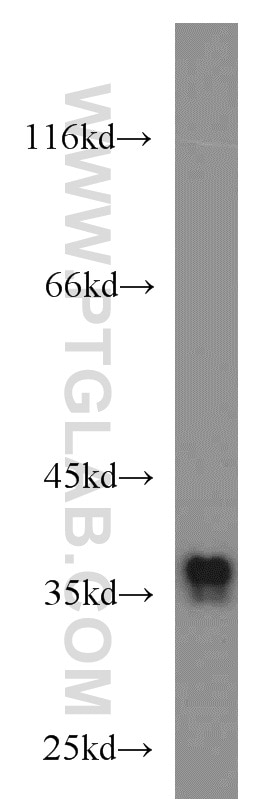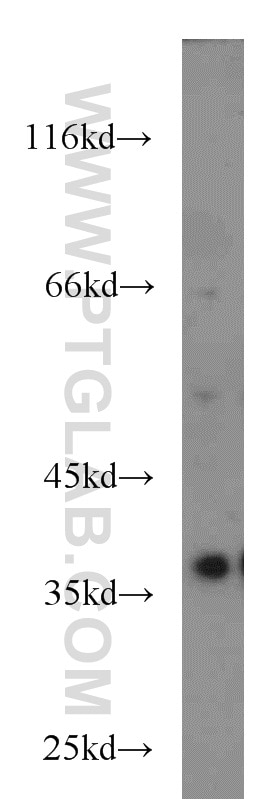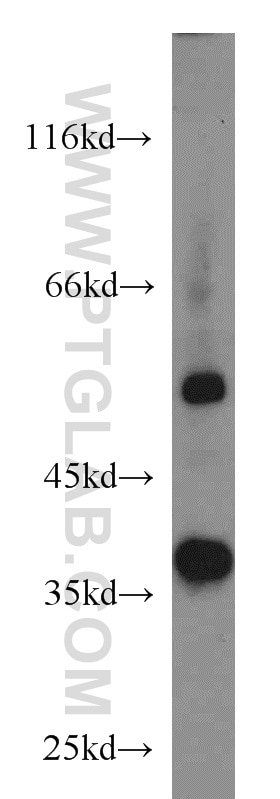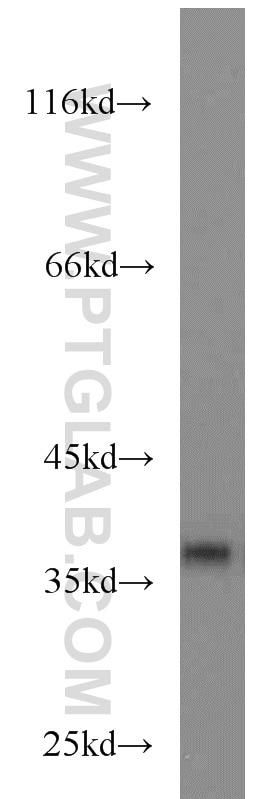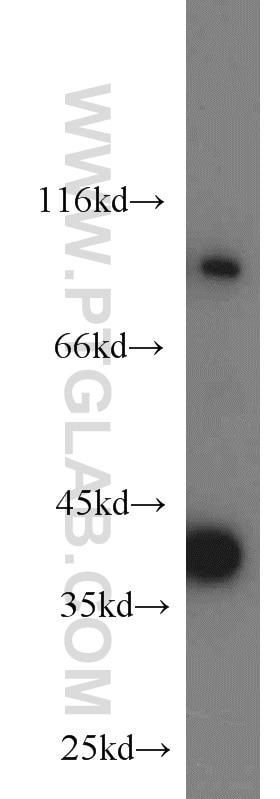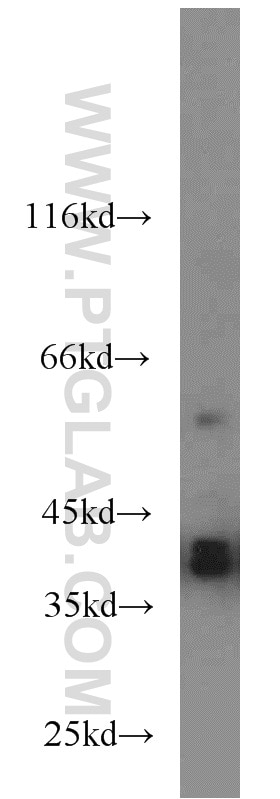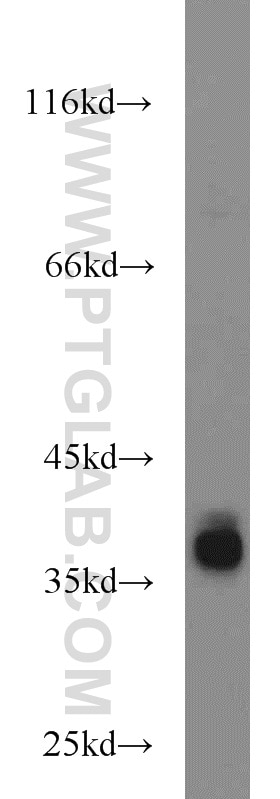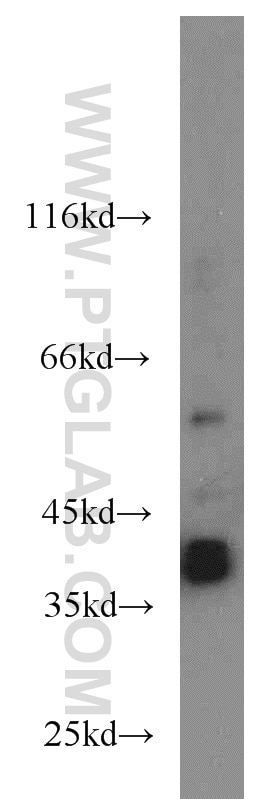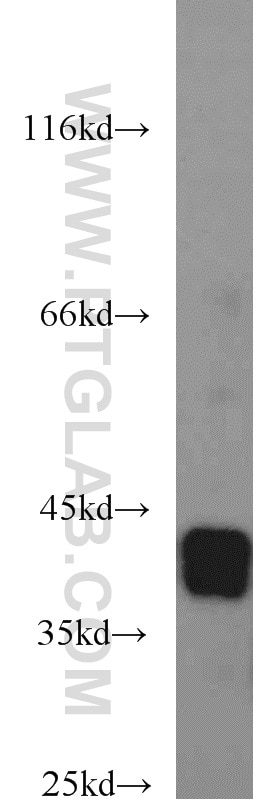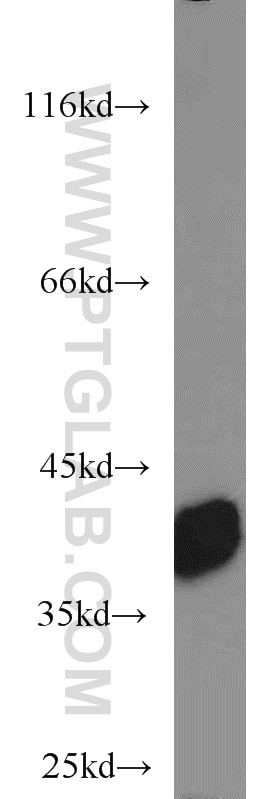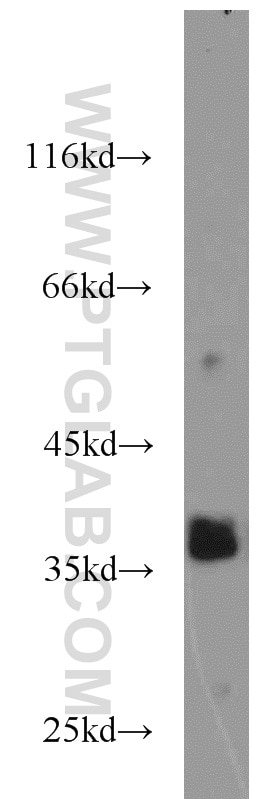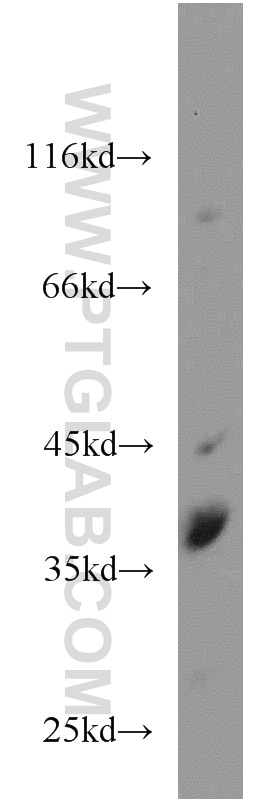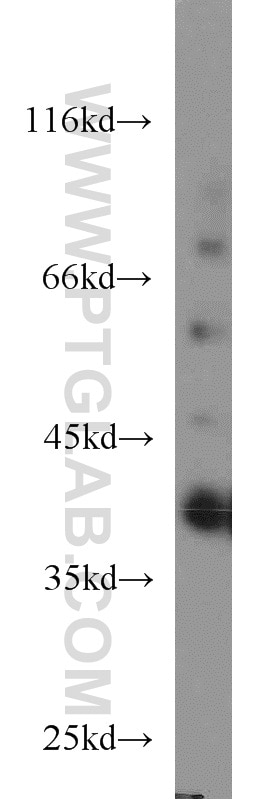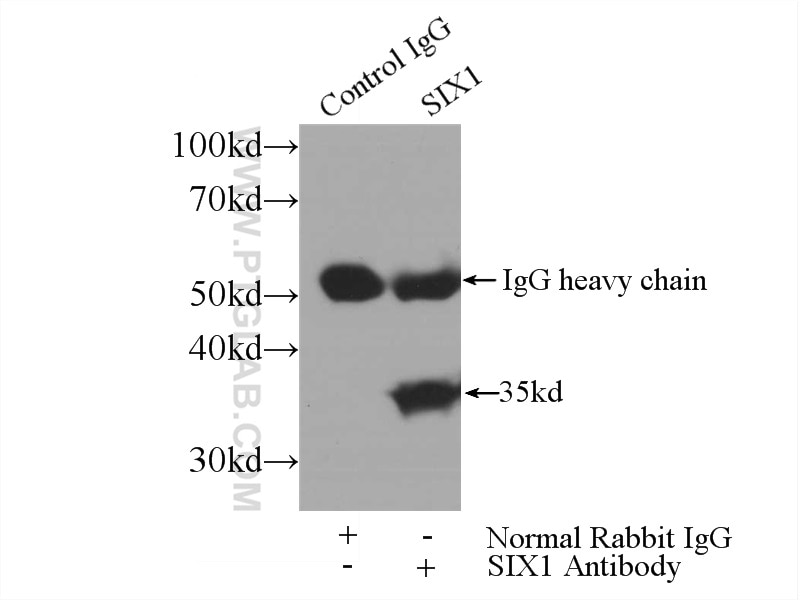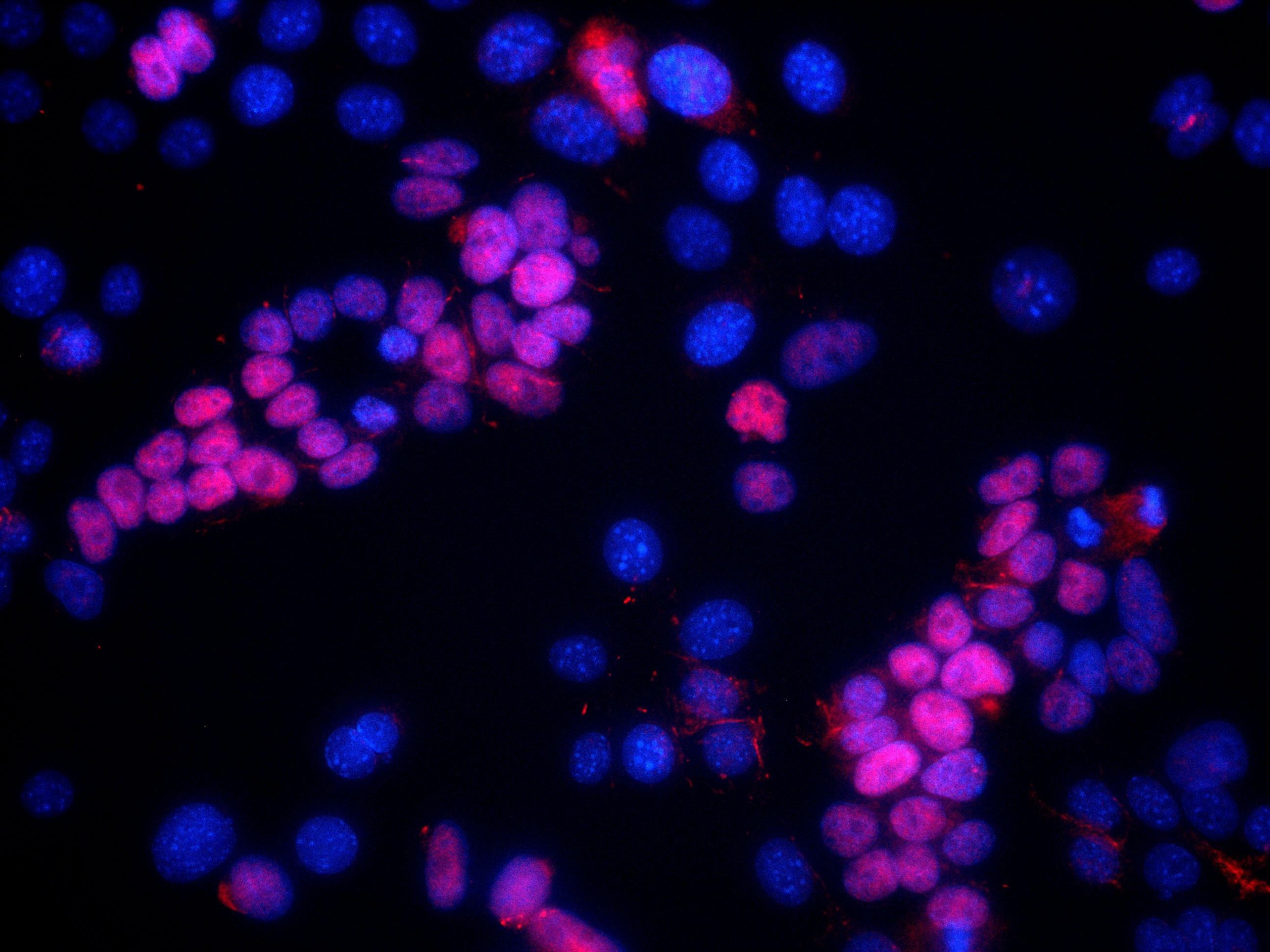Tested Applications
| Positive WB detected in | A2780 cells, HEK-293 cells, HepG2 cells, L02 cells, PC-3 cells, SKOV-3 cells |
| Positive IP detected in | HEK-293 cells |
| Positive IF/ICC detected in | epithelial tumor cells |
Recommended dilution
| Application | Dilution |
|---|---|
| Western Blot (WB) | WB : 1:500-1:1000 |
| Immunoprecipitation (IP) | IP : 0.5-4.0 ug for 1.0-3.0 mg of total protein lysate |
| Immunofluorescence (IF)/ICC | IF/ICC : 1:20-1:200 |
| It is recommended that this reagent should be titrated in each testing system to obtain optimal results. | |
| Sample-dependent, Check data in validation data gallery. | |
Published Applications
| KD/KO | See 11 publications below |
| WB | See 23 publications below |
| IHC | See 13 publications below |
| IF | See 9 publications below |
| IP | See 2 publications below |
| CoIP | See 1 publications below |
| RIP | See 1 publications below |
Product Information
10709-1-AP targets SIX1 in WB, IHC, IF/ICC, IP, CoIP, RIP, ELISA applications and shows reactivity with human, mouse samples.
| Tested Reactivity | human, mouse |
| Cited Reactivity | human, mouse, rat |
| Host / Isotype | Rabbit / IgG |
| Class | Polyclonal |
| Type | Antibody |
| Immunogen |
CatNo: Ag1044 Product name: Recombinant human SIX1 protein Source: e coli.-derived, PGEX-4T Tag: GST Domain: 1-284 aa of BC008874 Sequence: MSMLPSFGFTQEQVACVCEVLQQGGNLERLGRFLWSLPACDHLHKNESVLKAKAVVAFHRGNFRELYKILESHQFSPHNHPKLQQLWLKAHYVEAEKLCGRPLGAVGKYRVRRKFPLPRTIWDGEETSYCFKEKSRGVLREWYAHNPYPSPREKRELAEATGLTTTQVSNWFKNRRQRDRAAEAKERENTENNNSSSNKQNQLSPLEGGKPLMSSSEEEFSPPQSPDQNSVLLLQGNMGHARSSNYSLPGLTASQPSHGLQTHQHQLQDSLLGPLTSSLVDLGS Predict reactive species |
| Full Name | SIX homeobox 1 |
| Calculated Molecular Weight | 32 kDa |
| Observed Molecular Weight | 32-35 kDa |
| GenBank Accession Number | BC008874 |
| Gene Symbol | SIX1 |
| Gene ID (NCBI) | 6495 |
| RRID | AB_2189077 |
| Conjugate | Unconjugated |
| Form | Liquid |
| Purification Method | Antigen affinity purification |
| UNIPROT ID | Q15475 |
| Storage Buffer | PBS with 0.02% sodium azide and 50% glycerol, pH 7.3. |
| Storage Conditions | Store at -20°C. Stable for one year after shipment. Aliquoting is unnecessary for -20oC storage. 20ul sizes contain 0.1% BSA. |
Background Information
SIX1 belongs to SIX family that contains a divergent DNA-binding homeodomain and an upstream SIX domain, which may participate both in determining DNA-binding specificity and in mediating protein-protein interactions. It may be involved in limb tendon and ligament development, and specifically expressed in skeletal muscle. SIX1 plays a essential role in the development of numerous organs and shows littlt to no expression in most non-neoplastic adult tissue, yet is overexpression in a number of meoplasms where it increases cell proliferation and survival. The calcualted molecular weight of SIX1 is 32kDa, but modified SIX1 is about 35 kDa.
Protocols
| Product Specific Protocols | |
|---|---|
| IP protocol for SIX1 antibody 10709-1-AP | Download protocol |
| WB protocol for SIX1 antibody 10709-1-AP | Download protocol |
| Standard Protocols | |
|---|---|
| Click here to view our Standard Protocols |
Publications
| Species | Application | Title |
|---|---|---|
Cancer Cell Transcriptional Regulation of the Warburg Effect in Cancer by SIX1.
| ||
Adv Sci (Weinh) Transcriptional Regulation of De Novo Lipogenesis by SIX1 in Liver Cancer Cells | ||
Nat Commun Muscle progenitor specification and myogenic differentiation are associated with changes in chromatin topology. | ||
Int J Biol Sci Novel LncRNA LINC02936 Suppresses Ferroptosis and Promotes Tumor Progression by Interacting with SIX1/CP Axis in Endometrial Cancer
| ||
Theranostics O-GlcNAcylation of SIX1 enhances its stability and promotes Hepatocellular Carcinoma Proliferation.
|

